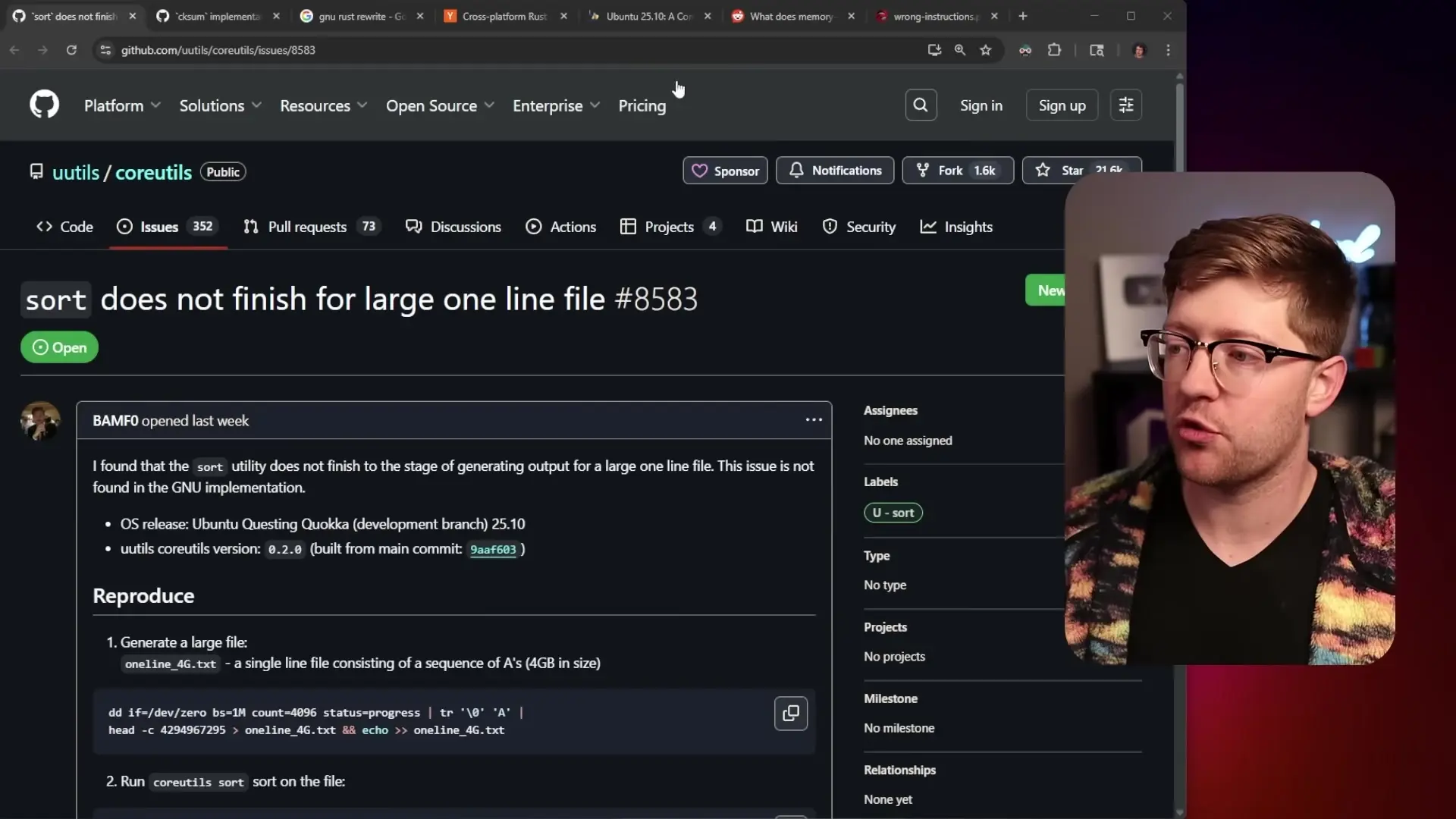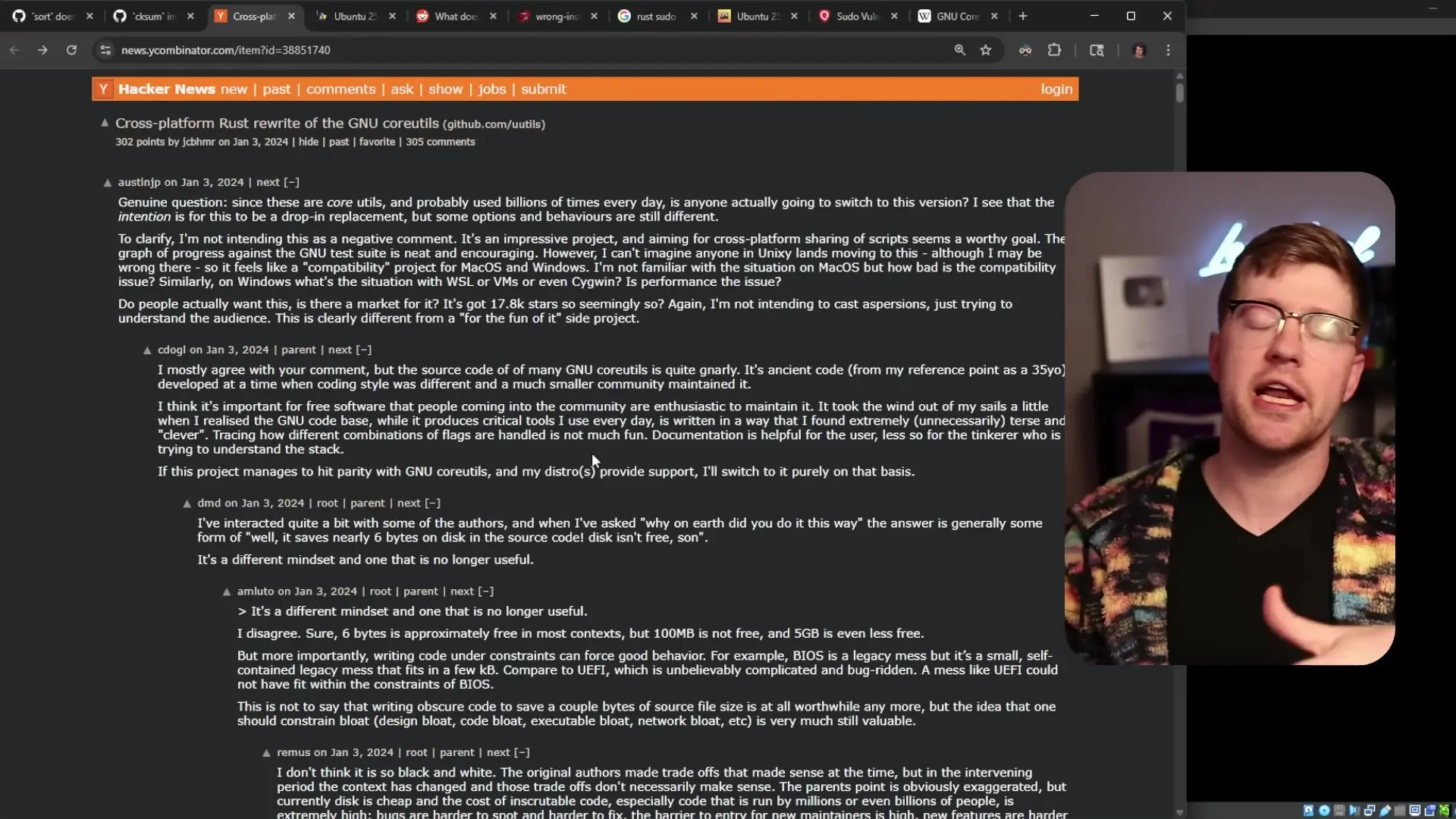
A significant movement is underway in the GNU community to rewrite Linux core utilities in Rust. This initiative stems from Rust's promise of memory safety—preventing vulnerabilities like buffer overflows and use-after-free bugs that have historically plagued C programs. However, recent developments suggest this transition isn't without serious problems.

The Promise of Memory Safety in Rust
Rust has gained popularity for its ability to prevent memory-related vulnerabilities at compile time. The language's ownership model and borrowing system eliminate entire classes of bugs that have been responsible for countless security exploits in C and C++ codebases. This makes Rust particularly attractive for security-critical applications.
The security argument is compelling: memory-related vulnerabilities like buffer overflows can allow attackers to gain control of systems by manipulating memory in ways the original programmers never intended. By preventing these issues at the language level, Rust offers a powerful solution to a persistent problem in systems programming.
Performance and Functionality Concerns
However, recent benchmarks of Rust-rewritten utilities have revealed concerning issues. Two notable examples highlight the challenges:
- The Rust implementation of 'sort' fails to complete when processing a one-line file that is 4GB in size—a functionality regression from the C version
- The Rust rewrite of the checksum utility is reportedly 17 times slower than its C counterpart, undermining Rust's claims of C-comparable performance
These issues raise important questions about the trade-offs between memory safety and other critical aspects of software quality, such as performance and functionality completeness. They also highlight that rewriting established, well-tested code introduces risks of its own.
Security Boundaries and Threat Models
A critical consideration in the Rust rewrite movement is whether the targeted utilities actually guard important security boundaries. The 'sudo' command, for example, is a sensible target for a security-focused rewrite because it crosses privilege boundaries—it runs with elevated permissions and has been the subject of numerous CVEs (Common Vulnerabilities and Exposures).
CVE-2021-3156, a heap-based buffer overflow in sudo, exemplifies why security-critical components benefit from memory-safe implementations. When exploited, this vulnerability allowed attackers to gain root privileges—precisely the kind of security boundary violation that Rust aims to prevent.

However, many core utilities like 'sort' or 'checksum' don't guard similar security boundaries. The threat model for these tools is less clear—is a malicious input file that crashes 'sort' a realistic attack vector requiring the protections Rust provides?
Memory Safety vs. Logic Safety
An important distinction often overlooked in discussions about Rust is the difference between memory safety and logic safety. Rust guarantees the former but not the latter. Programs written in Rust can still contain logical errors, infinite loops, or other non-memory-related bugs.
When rewriting established utilities, developers must reimplement complex algorithms and edge-case handling. This process inevitably introduces the risk of logic errors, even if memory safety is guaranteed. The 'sort' utility's failure with large files illustrates this problem—it's not a memory safety issue but a logical implementation problem.
// Even in Rust, logical errors are possible
fn process_large_file(path: &str) -> Result<(), Error> {
// This code might be memory safe but could still
// fail to handle edge cases correctly
let file = File::open(path)?;
// ...
Ok(())
}The Maintenance Burden and Cultural Shift
Beyond the immediate technical concerns, the Rust rewrite movement raises questions about long-term maintenance. The Linux kernel and core utilities have decades of C expertise behind them. A wholesale shift to Rust could create a situation where, as the current generation of C experts retires, the community lacks sufficient expertise to maintain critical components.

Some have suggested that the push toward Rust reflects a cultural shift more than a purely technical one—younger programmers may be more comfortable with Rust than C. While this might address current talent pipeline concerns, it creates potential future maintenance challenges.
A Balanced Approach to Rust Adoption
Rather than wholesale rewrites, a more balanced approach might focus Rust adoption on components with clear security boundaries and attack surfaces. This targeted strategy would prioritize:
- Components that run with elevated privileges (like sudo)
- Network-facing services that process untrusted input
- Parsers and decoders that handle potentially malicious files
- Security-critical libraries used throughout the system
For utilities without clear security implications, the cost-benefit analysis of rewriting them is less favorable, especially given the performance and functionality regressions observed in current Rust rewrites.
Conclusion: Pragmatic Security Over Dogmatic Rewrites
The Rust rewrite movement highlights important tensions in software development: security versus performance, innovation versus stability, and modern versus legacy approaches. While Rust offers genuine security benefits through memory safety, the current implementation challenges suggest that wholesale rewrites of core utilities may not be the most effective approach.
A more nuanced strategy would prioritize Rust for components with clear security implications while maintaining well-tested, performant C code for utilities where the security benefits are less clear. This balanced approach would leverage Rust's strengths while mitigating the risks of regression and maintenance challenges.
As the Linux community navigates this transition, the focus should remain on pragmatic improvements to security rather than dogmatic language preferences. After all, the ultimate goal is more secure, reliable systems—not simply more Rust code.
Let's Watch!
The Rust Rewrite Dilemma: Memory Safety vs Performance Trade-offs
Ready to enhance your neural network?
Access our quantum knowledge cores and upgrade your programming abilities.
Initialize Training Sequence